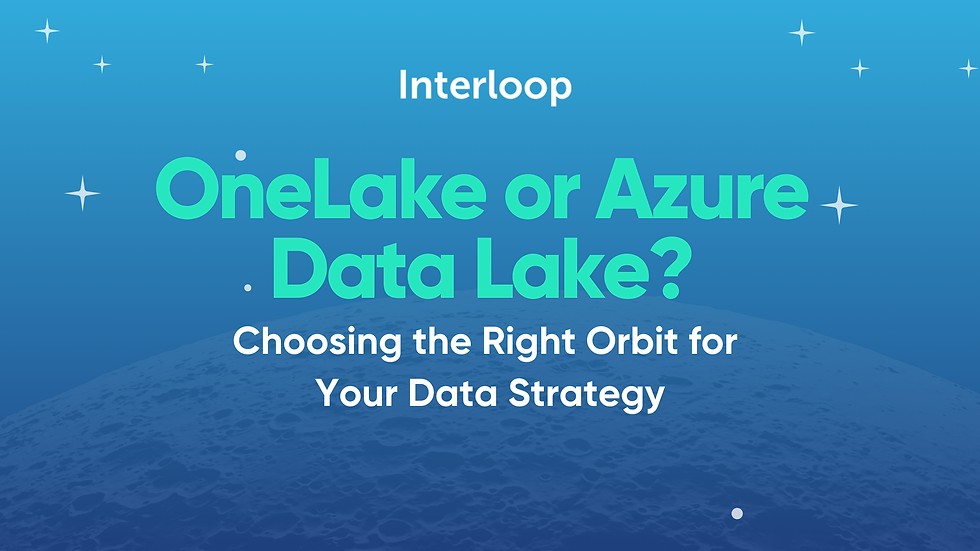The Rise of DataOps: Creating a Competitive Advantage in the AI Era
- Interloop

- Dec 19, 2024
- 2 min read
In today's rapidly evolving digital landscape, data has become the lifeblood of organizations, driving decision making and strategic initiatives. As businesses strive for operational excellence, a new discipline has emerged to streamline and optimize data processes: DataOps.
This methodology, which combines agile development, DevOps, and lean manufacturing principles, is revolutionizing how organizations manage and utilize their data. Let's explore the rise of DataOps and how it can create a true competitive advantage for organizations of all sizes in the era of AI.
What is DataOps?
Data Operations (DataOps) is an automated, process-oriented methodology used by analytics and data teams to improve the quality and reduce the cycle time of advanced analytics.
By fostering collaboration among data scientists, engineers, and technologists, DataOps ensures that every team works in sync to use data more effectively and efficiently. This approach encompasses the entire data lifecycle, from ingestion and processing to modeling and insights, enabling organizations to gain more value from their data.
The Benefits of DataOps
Accelerated Time to Value: DataOps enables faster development and deployment of analytics models by automating repetitive tasks and streamlining processes. This acceleration allows organizations to quickly adapt to market changes and make data-driven decisions in real-time.
Improved Data Quality: By implementing continuous code quality checks and early detection of data inconsistencies, DataOps reduces errors and enhances data reliability . This approach leads to more accurate analysis and better business insights.
Enhanced Collaboration: DataOps fosters a culture of collaboration across multidisciplinary teams, breaking down silos and ensuring that data is accessible and usable by all stakeholders. This collaborative environment drives innovation and improves overall productivity.
Cost Reduction: Automation of data processes reduces the need for manual intervention, cutting down on operational costs. Additionally, by optimizing data workflows, organizations can achieve significant savings in IT expenses.
Scalability + Flexibility: DataOps provides a scalable framework that can be tailored to the specific needs of an organization. Whether it's a small startup or a large enterprise, DataOps can be adapted to handle varying data volumes and complexities.
Creating a Competitive Advantage
In the era of AI, the ability to harness data effectively is a key differentiator. DataOps empowers organizations to leverage advanced analytics and AI technologies to gain a competitive edge. By enabling faster, more accurate decision-making, DataOps helps businesses stay ahead of the curve and respond proactively to market demands.
Moreover, DataOps supports the creation of personalized customer experiences by providing deeper insights into customer behavior and preferences. This customer-centric approach fosters loyalty and drives growth, positioning organizations as leaders in their respective industries
Conclusion
The rise of DataOps marks a significant shift in how organizations approach data management and analytics. By striving for operational excellence with data, businesses can unlock new opportunities, drive innovation, and achieve sustainable growth. As the digital landscape continues to evolve, embracing DataOps will be crucial for organizations looking to thrive in the AI era.
Get Looped In
Are you ready to harness the power of DataOps for your organization? Let's loop you in - learn more about Mission Control, our DataOps Platform for Microsoft Fabric and explore how this emerging discipline can transform your data strategy for a true competitive advantage.




